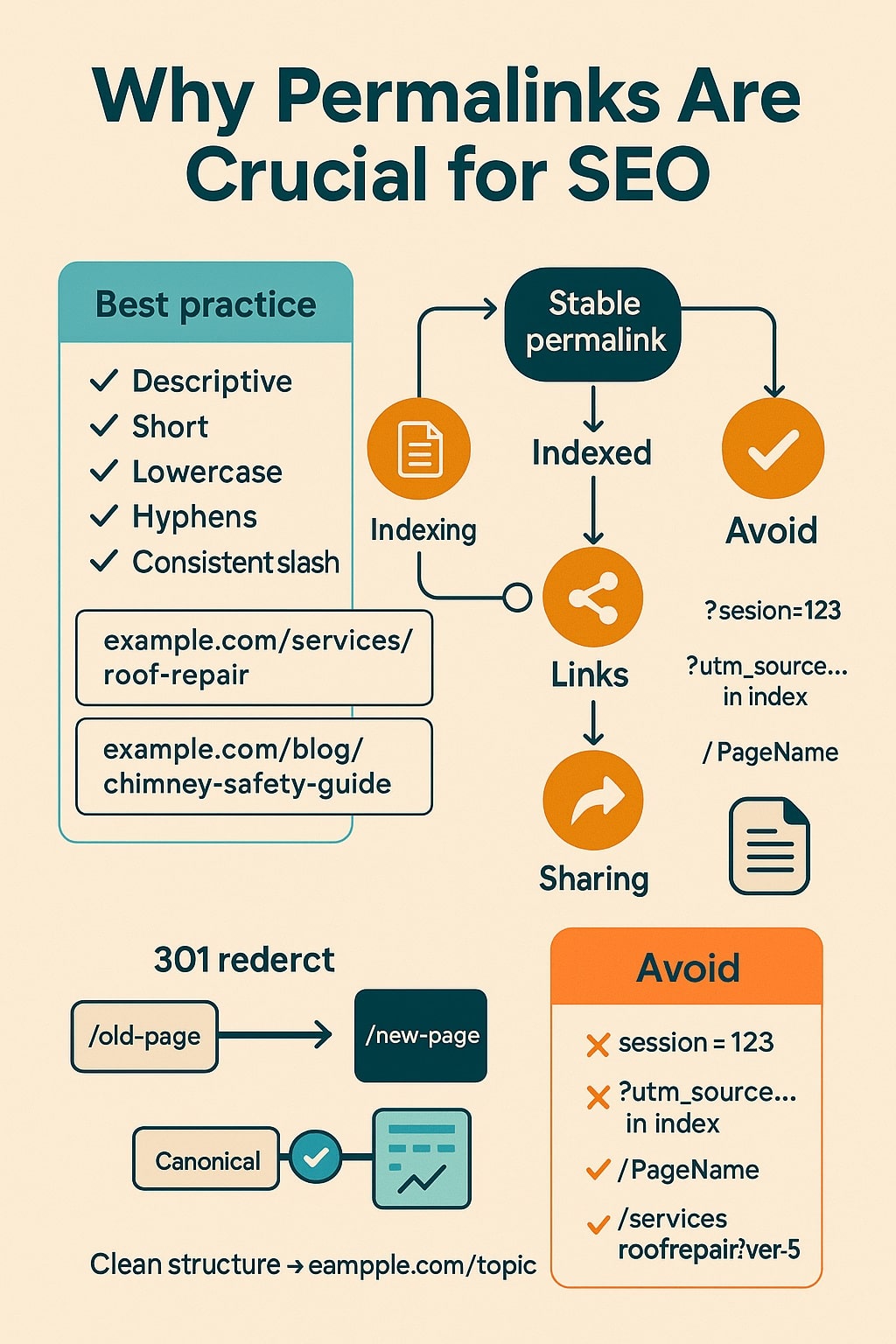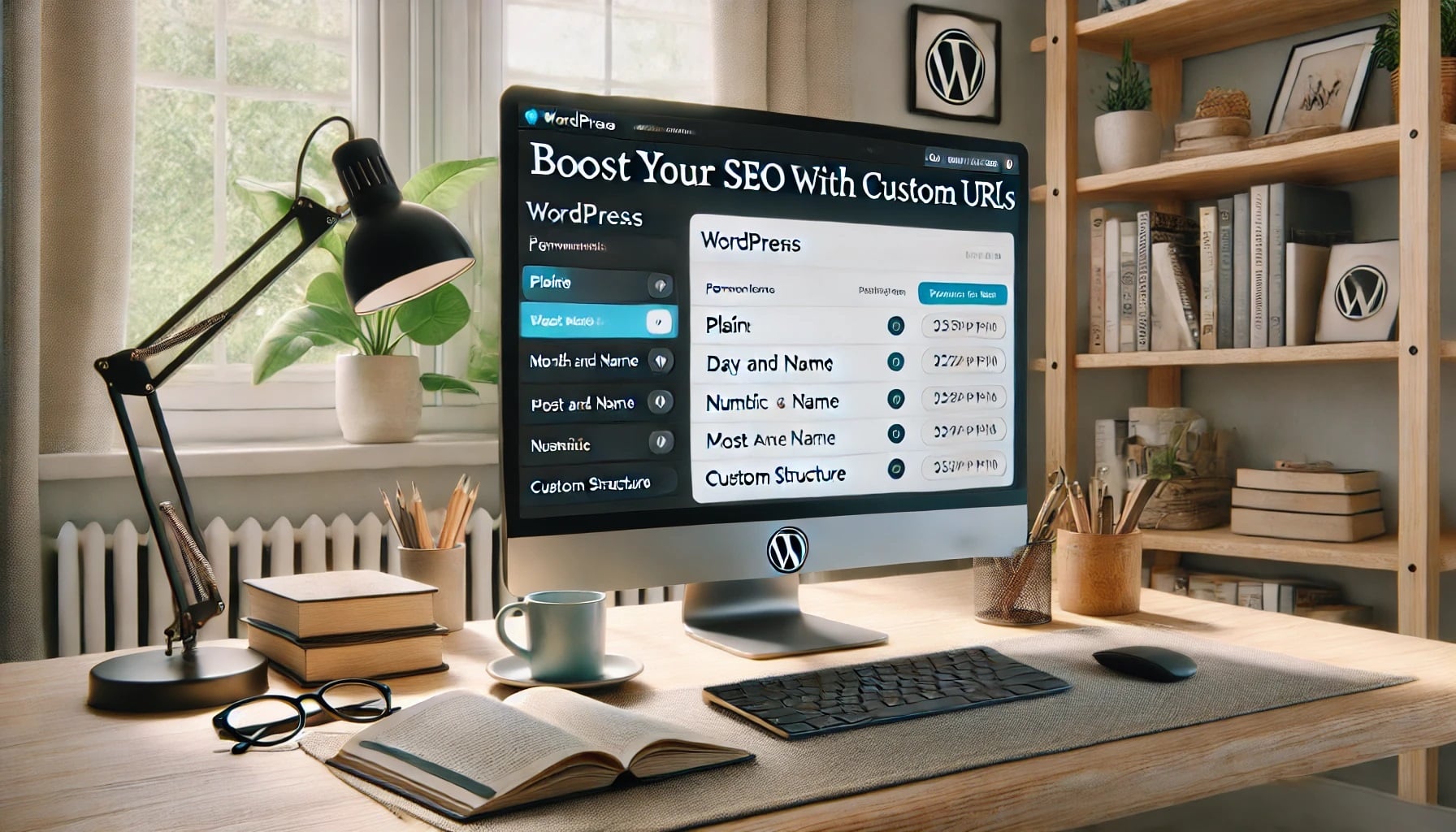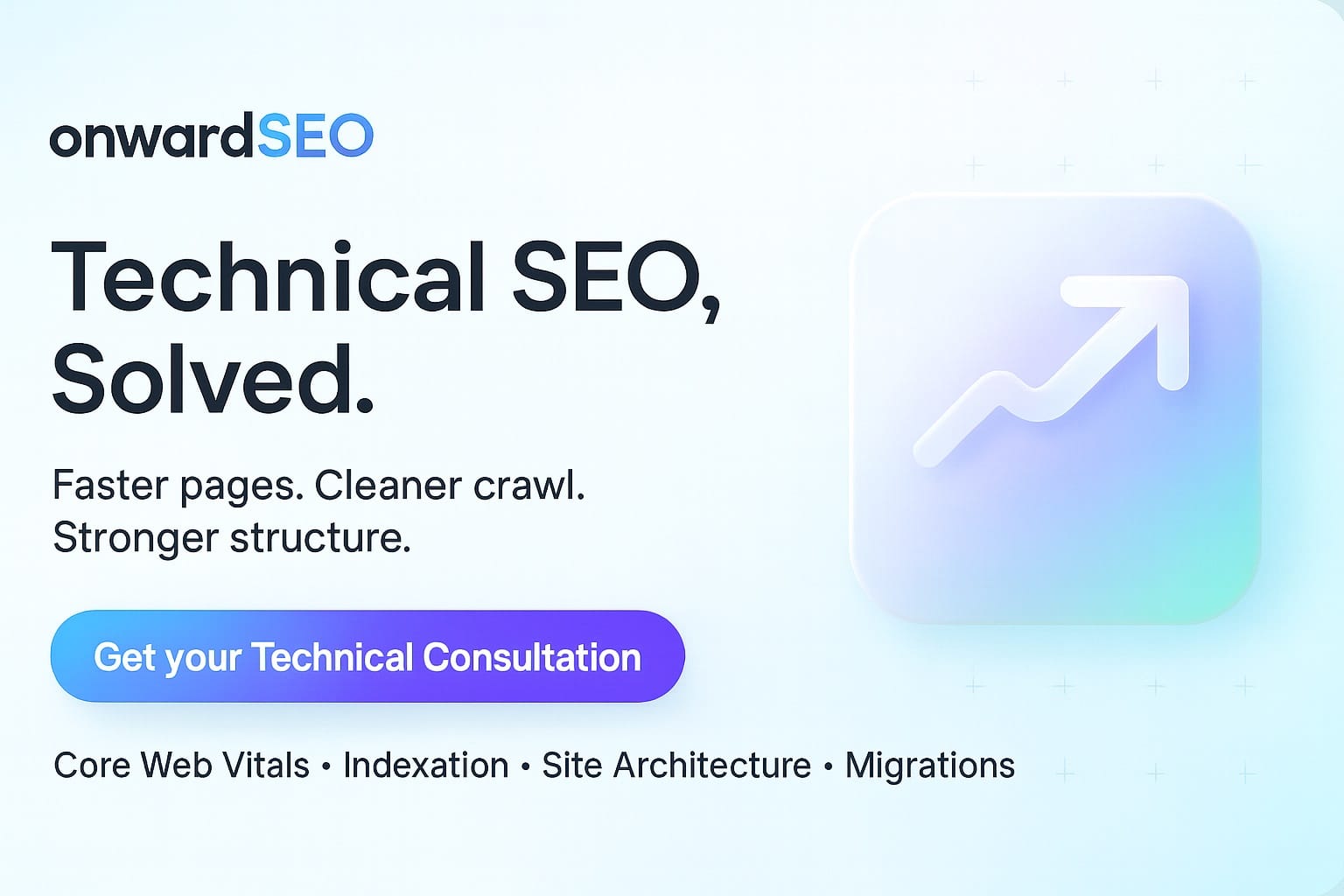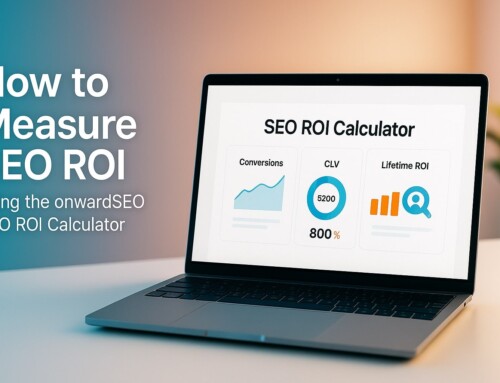In the Ever-Changing Field of SEO, Every Detail Counts – Optimizing Your WordPress SEO Permalink Structure
The permalink structure (SEO Website Structure) is one of the most important yet often overlooked parts of on-page SEO. This post explains how mastering WordPress permalinks may substantially improve your website’s SEO performance with the help of a WordPress SEO expert or WordPress SEO agency. It is intended for entrepreneurs and SME owners of online enterprises and small-to-medium e-commerce websites.
Permalinks are what?
Permalinks are permanent URLs for blog posts, pages, and other forms of content on a WordPress site. These are the URLs that consumers enter into their browsers or that search engines use to index content. By default, WordPress creates permalinks that are not necessarily SEO-friendly, such as:
http://yourwebsite.com/?p=123
This default structure provides no useful information to search engines or visitors about the page’s content.
Why Are Permalinks Crucial for SEO?

Permalinks are important in SEO for a variety of reasons:
- Keyword Relevance: Using relevant keywords in URLs helps search engines grasp the content’s topic.
- User Experience: Clean and descriptive URLs improve the user experience by helping users grasp what a page is about before visiting.
- Link Sharing: SEO-friendly URLs are more likely to be shared and linked to, which boosts the backlink profile.
Default Settings versus Custom Permalinks
Default settings:
WordPress defaults to a query string format for URLs, which is not SEO friendly. For example:
http://yourwebsite.com/?p=123
This URL structure provides no information regarding the page’s content, resulting in a missed chance for SEO improvement.
Custom Permalinks
Custom Permalinks are user-friendly and can include descriptive keywords. For example:
http://yourwebsite.com/seo-tips/
This URL is not only more appealing, but it also gives search engines a clear indicator of the page’s contents.
How to Create and Optimize SEO Permalinks in WordPress
Creating custom SEO permalinks in WordPress is simple. Here’s a step-by-step instruction that will help:
Access the Permalink Settings:
- Log into the WordPress dashboard.
- Navigate to Settings > Permalinks.
- Choose a structure.
WordPress provides numerous possibilities for permalink construction. For website SEO architecture, the post name option is usually the best choice. It appears like this:
http://yourwebsite.com/sample-post/
This format is succinct and enables for the inclusion of desired keywords.
Customize Permalinks as follows:
For more advanced customisation, select Custom Structure. This enables the addition of components such as categories and tags to URLs. A common custom structure could be:
/category/postname/
This style allows for more context and keywords in URLs.
Save Changes:
After selecting or changing the structure, click Save Changes.
Permalinks: Best Practices
- Keep It Simple: Avoid needless words and complex frameworks. A shorter, simpler URL is easier to read and distribute.
- Include Keywords: Make sure the primary term is included in the URL. This helps both search engines and users understand the content.
- Avoid Stop Words: Words like “and,” “or,” “but,” and so on can be removed to make the URL clear.
- Use Hyphens: Use hyphens (-) to separate words in the URL. This is the accepted technique for readability and SEO.
Real-life Example
Consider the differences between these two URLs:
- Default:
http://example.com/?p=123 - Custom URL:
http://example.com/wordpress-seo-tips
The custom URL clearly shows that the page provides WordPress SEO suggestions, increasing the likelihood that it will be clicked and properly indexed by search engines.
Case Study: Transforming a Business with SEO-Friendly URLs
A tiny e-commerce site selling handcrafted products had a large increase in organic traffic after improving their permalinks. Initially, their URLs were non-descriptive and packed with query strings. By transitioning to a keyword-rich format, their visibility in search results increased significantly. For example, altering a product page URL from http://example.com/?product=25 to http://example.com/handmade-wool-scarf improved their ranking for related search searches.
Case Study 1: Improving a Travel Blog’s Search Visibility
A travel blog concentrating on exotic destinations suffered from low search presence due to ambiguous URLs.
Problem Statement
URLs like http://example.com/?post=102 were not informative and lacked valuable keywords.
Solution
The blog moved to a keyword-rich structure, such as http://example.com/bali-travel-guide.
Results
- Organic Traffic: Increased by 40%.
- Improved Rankings: Destination-specific queries now rank higher.
Case Study 2: Improving User Experience on Recipe Websites
Background
Complex URLs caused problems with user engagement on a popular recipe website.
Problem Statement
Users struggled to remember and share URLs such as http://example.com/?recipe=678.
Solution
URLs were restructured with recipe names, such as http://example.com/chocolate-chip-cookies.
Results
- User Engagement: A 25% increase in return visitors.
- Social Shares: A 30% increase in social media shares.
Case Study 3: Improving Local SEO for a Plumbing Service by doing a WordPress SEO Audit
Background
A local plumbing service had difficulty ranking for local search queries.
Problem Statement
Their URLs, such as http://example.com/?service=plumbing, were not optimized for local SEO.
Solution
New URLs had location-specific terms, such as http://example.com/plumbing-services-new-york.
Results
- Local Traffic: A 50% increase in local search traffic.
- Booking Rate: 35% increase in service bookings.
Case Study 4: Improving Visibility for an Online Bookstore
An online bookstore encountered difficulties in ranking for specific book titles.
Problem Statement
The URLs, such as http://example.com/?book=345, were vague and lacked context.
Solution
URLs were improved to include book names, such as http://example.com/harry-potter-and-the-sorcerers-stone.
Results
- Search Rankings: Significantly improved for book-specific searches.
- Book Sales: Increased by 20%.
Case Study 5: Optimizing a Tech Blog for Better Indexation
Background
Search engines did not properly index a tech site that covered the latest devices.
Problem Statement
Their URLs, such as http://example.com/?post=99, did not match the content.
Solution
URLs were reformatted with article titles, such as http://example.com/review-iphone-13.
Results
- Indexing Speed: 30% faster indexing by search engines.
- Organic Traffic: 25% increase in traffic.
Case Study 6: Increasing Engagement on an Educational Platform
Background
An educational platform that provided online courses had poor user engagement.
Problem Statement
URLs like http://example.com/?course=200 were unclear and difficult to navigate.
Solution
URLs were streamlined to incorporate course titles, such as http://example.com/learn-python-programming.
Results
- User Engagement: A 40% increase in course enrollment.
- Session Duration: 15% longer than the typical session.
Case Study 7: Improving a Fashion E-Commerce Site’s URL Structure
Background
A fashion e-commerce website has trouble ranking for product-specific queries.
Problem Statement
Their URLs, such as http://example.com/?item=478, were not SEO friendly.
Solution
New URLs incorporated product names and categories, such as http://example.com/womens-leather-jacket.
Results
- Product Visibility: Product page visits increased by 35%.
- Sales Conversion: A 20% increase in conversion rates.
Case Study 8: Boosting SEO on a Health and Wellness Blog
Background
A health and wellness blog experienced low organic traffic owing to bad URL structure.
Problem Statement
URLs such as http://example.com/?entry=56 did not include vital keywords.
Solution
URLs were optimized to represent content subjects, such as http://example.com/benefits-of-yoga.
Results
- Organic Traffic: Search engine traffic increased by 30%.
- Reader Engagement: 25% increased comments and shares.
Case Study 9: Improving Discoverability of a Music Review Site
Background
A music review website has difficulty ranking for artist and album-specific queries.
Problem Statement
Their URLs, such as http://example.com/?review=901, were not descriptive.
Solution
New URLs incorporated artist names and album titles, such as http://example.com/review-taylor-swift-folklore.
Results
- Search Rankings: More visibility for artist and album reviews.
- User Interaction: A 20% increase in page interactions.
Case Study 10: Simplifying a News Website’s URL Structure
Background
A news website struggled with low click-through rates due to ambiguous URLs.
Problem Statement
The URLs, such as http://example.com/?article=554, were not useful.
Solution
URLs were optimized to contain article headlines, such as http://example.com/election-results-2024.
Results
- CTR Improvement: 15% increased click-through rates.
- News Reach: A 20% increase in readership.
Frequently Asked Questions
Q. How frequently should permalinks be updated?
A: Permalink structures should be properly set up from the beginning and not altered regularly. Changing permalinks might result in broken links and loss of traffic. If they must be modified, make sure the necessary 301 redirects are in place.
Q: Does altering permalinks harm SEO?
A: Yes, it can. If done wrong, it might result in broken links and a loss of rankings. Always utilize 301 redirects to alert search engines about the changed URL paths.
Q: Are there any plugins that aid with permalink management?
A: Yes, plugins like Yoast SEO and Redirection can help you maintain and improve your permalinks.
Q: What is the optimal SEO permalink structure in WordPress?
A: The optimal permalink structure is usually one that incorporates keywords related to the content, such as /post-name/ or /category/post-name/. This makes URLs easier to understand and optimizes their SEO potential.
Q: How do I update the WordPress permalink structure?
A: To alter the permalink structure in WordPress, navigate to Settings > Permalinks and select a new structure. To maintain SEO, ensure that 301 redirects from old URLs to new ones are in place.
Q: How will altering permalinks affect my current social media shares?
A: Yes, altering permalinks can cause broken links on social networking. To mitigate this, utilize 301 redirects to send old URLs to new ones, ensuring that links continue to function.
Q: How can I make a custom permalink in WordPress?
A: To create a custom permalink, update the URL directly in the post editor’s Permalink area. You can also use a plugin like Custom Permalinks to manage complex URL structures.
Q: What are 301 redirects, and why are they important?
A: A 301 redirect is a permanent redirection from one URL to another. It is critical to retain SEO value and ensure that users and search engines are directed to the right URL when permalinks are altered.
Q: Can I include keywords in my permalinks?
A: Yes, using important keywords in your permalinks can help with SEO by making URLs more descriptive and easier for search engines to interpret.
Q: How can I see if my permalinks are SEO-friendly?
A: You can determine whether your permalinks are SEO-friendly by ensuring that they are brief, contain important keywords, and are devoid of superfluous characters or parameters. Yoast SEO is a tool that can help you examine and optimize your URLs.
Q: What should you avoid when making permalinks?
A: Do not use dates, special characters, or extremely complex structures in your permalinks. These can make URLs less readable and more difficult to manage for SEO reasons.
By adhering to these best practices and utilizing accessible tools, you can efficiently maintain and optimize your website’s permalinks to boost SEO and user experience. If you have any further questions, please contact an expert.
Conclusion: Use Custom Permalinks to Maximize the Potential of Your WordPress Site
Optimizing permalinks is one of the easiest yet most effective ways to improve your WordPress SEO. Customizing your URLs to be both user-friendly and keyword-rich allows you to deliver clear and relevant information to both search engines and users. This not only improves the user experience, but it also increases your site’s visibility and traffic.
Custom permalinks serve as a roadmap for search engines, directing them through your site’s content with precision. When URLs are clear and descriptive, visitors are more likely to click on them, sending positive signals to search engines. This can lead to improved indexing and higher ranks for your material. Furthermore, keyword-rich permalinks assist search engines in understanding the context and relevancy of your pages, allowing them to better match your content to user queries.
The benefits of well-structured permalinks go beyond SEO. They improve the overall user experience by making URLs easier to understand and remember. Users are more inclined to trust and click on a URL that clearly defines the content they intend to access. This can result in improved engagement, decreased bounce rates, and higher conversion rates for your website.
Implementing a good permalink strategy entails more than simply selecting the appropriate structure. To keep your URLs relevant and functional, you must prepare ahead of time and maintain them often. Using tools such as Yoast SEO and Redirection can help you maintain and improve your permalinks more easily. These tools can assist you in setting up 301 redirects to protect link equity and eliminate broken links, ensuring a seamless transition whenever you need to alter your URLs.
To summarize, mastering SEO custom permalinks is a critical component of a strong SEO strategy. It’s a minor change that can significantly improve your site’s search performance and user engagement. Begin optimizing your permalinks today, and you’ll soon notice the difference in your search rankings and overall site success. With well-structured, keyword-rich URLs, you can maximize the potential of your WordPress site and increase its online visibility and traffic.
About the Author:
With over 14 years of seasoned expertise in Technical SEO consulting, Eugen Platon SEO Expert stands at the forefront of the evolving digital marketing landscape. His approach to Technical SEO (search engine optimization) is both comprehensive and bespoke, ensuring that each technical SEO project he undertakes is finely tuned to its unique requirements and goals. He excels in elevating website visibility, bolstering user engagement, and navigating the ever-changing currents of SEO. Under his guidance, your online presence is transformed into a dynamic digital force, adeptly meeting and surpassing set objectives. Eugen combines time-tested SEO strategies with cutting-edge AI powered SEO techniques, dedicating himself to transforming your digital footprint into a magnet for both search engines and your target audience. Embark on a journey with him to unlock the full SEO potential of your online presence.








